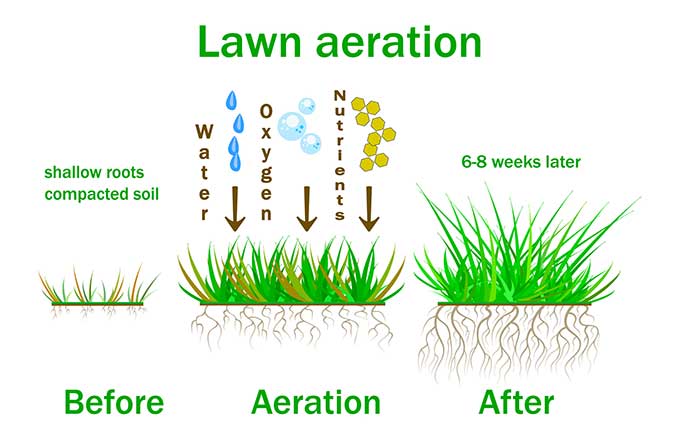
Aerating the lawn loosens up compacted soil, which allows nutrients, oxygen, and water to penetrate deep into the root system.
The holes made by aerating also create pockets for grass seed to lodge and germinate. Aeration and overseeding create a lusher and healthier lawn.
We prep the lawn for aeration and may have to mow first to achieve the best results. Then we aerate and spread seed over the lawn.
The lawn will be loosely raked to ensure that the grass seed comes into contact with the soil so the seeds can germinate. You will need to water the lawn for the next two to three weeks.

If you are tired of dealing with your leaves or don’t have the time, let us do it for you.
We’ll remove the leaves from your lawn, patios, retaining walls, and fence lines. We’ll also blow the leaves out of your garden beds and shrubs and remove them from your property.
Contact us for a free estimate for leaf removal before you end up with dead spots on your lawn or damage to your garden beds.
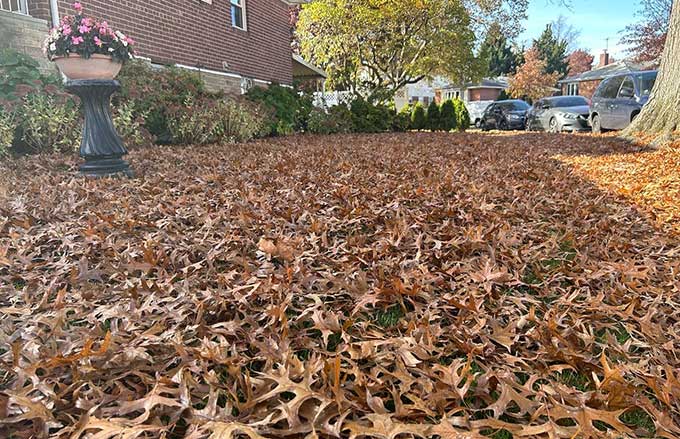

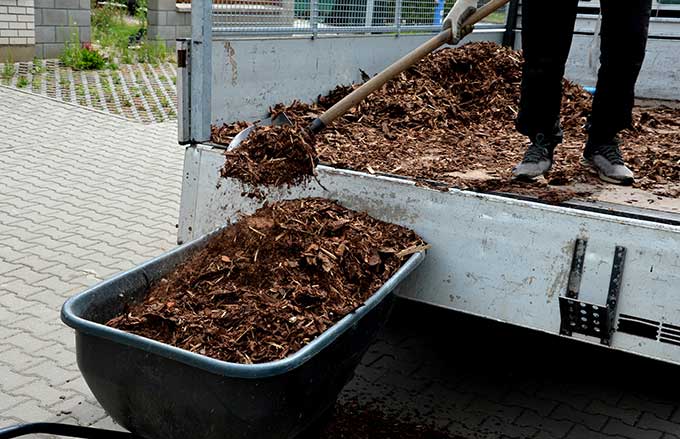
We mulch around your garden plants and trees to protect them from frost damage. The mulch will also:
Keep your garden looking its best all year round.

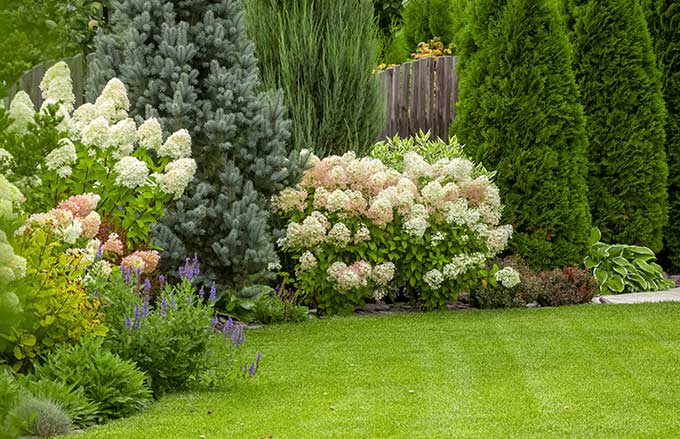
We remove any dead or diseased foliage in the fall to prevent pest or the disease from returning the next season.
Provide extra mulch over newly planted or tender perennials to protect their roots and crown and insulate the soil from harsh winter conditions. Perennial plants can be harmed by repeated freeze and thaw cycles and by extreme temperatures.
The right amount of mulch will also retain moisture for your perennials during the winter.

We carefully prune any damaged or dead branches along with any branches that will touch the ground during heavy snow or freezing rain.
Extra care is taken to remove suckers growing at the base of your trees. If the soil is compacted, it will be carefully aerated for better drainage.
A thin layer of mulch may be required to blanket the soil around trees. New or young trees that may easily be damaged can be wrapped for protection.
Shrubs will receive two to three inches of mulch for protection and insulation.
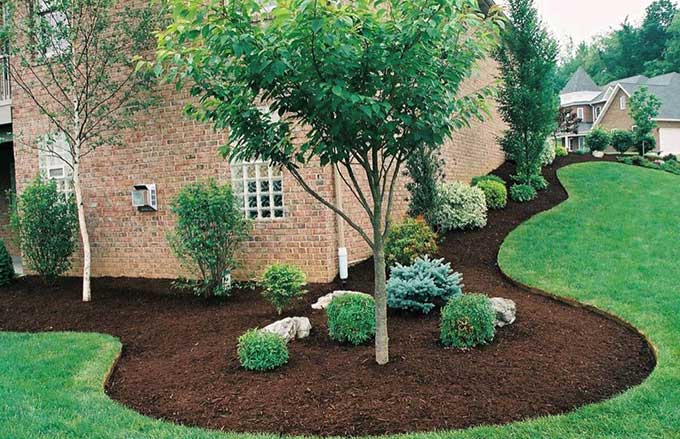

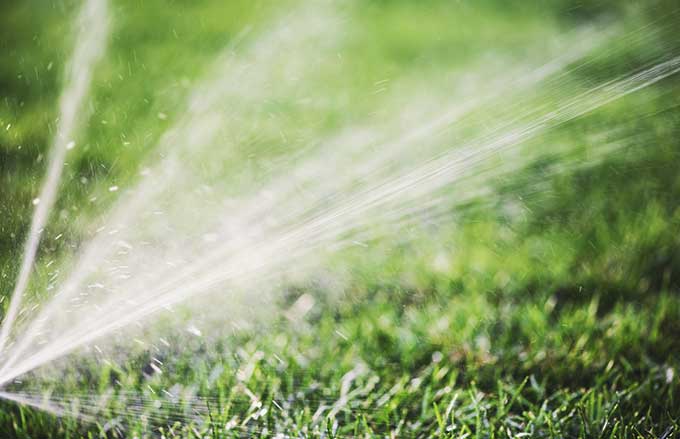
Irrigations systems require winterization to prevent damage from freezing temperatures and to avoid costly repairs in the spring.
To winterize your sprinkler system by shutting off the water supply, draining any standing water in the system above ground.
We then blow out any excess water remaining in the lines underground in each zone and set all valves for winter.